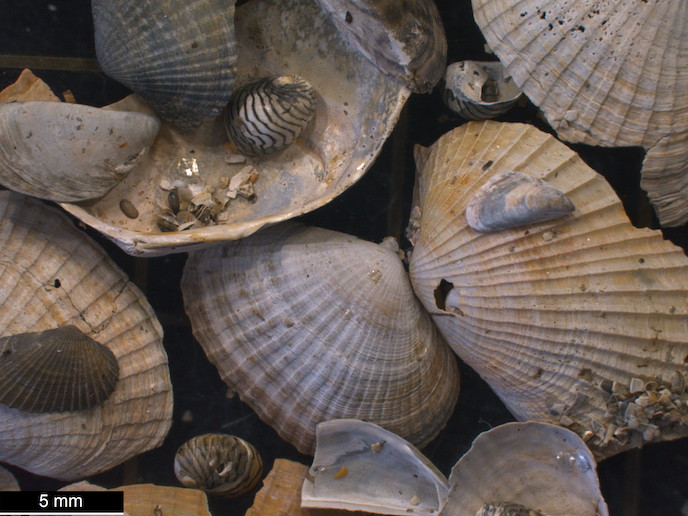Unique Black Sea and Caspian Sea biota is disappearing at a worrying pace
The Black and Caspian Seas and their biota are under threat. Known for their unusual salinity regimes and widespread occurrence of low-oxygen zones, these landlocked waters are seeing a huge share of Pontocaspian species disappear. Climate change, habitat destruction, invasive species and pollution are largely responsible for this phenomenon. “We are witnessing the demise of a 15 million-year evolutionary experiment,” notes Frank Wesselingh, molluscan palaeontologist at the Naturalis Biodiversity Center. “Species unique to the region, which adapted to unusual and variable salinity settings over this very long period – like sturgeons, the Caspian seal and hundreds of small species of fish, crustaceans and molluscs – are suffering badly.” Take the Caspian zebra mussel for instance. This species, which used to be the most common mollusc in both seas and has a fossil record of 5 million years, became extinct 20 to 30 years ago. The consequences of this disappearance remain unpredictable to this day. With the PRIDE (Drivers of Pontocaspian biodiversity RIse and DEmise) project, Wesselingh aimed to study ecosystems’ responses to such events and human perturbations in general. “We know much better now which groups are sensitive to change and which groups are more resilient. Whilst we can try to preserve some species, it is now clear that we won’t be able to save them all." “We know for instance that the Caspian seal is about to lose its major pupping grounds due to the projected warming and sea level drop which is expected to reach 18 metres over the next 80 years. Meanwhile, all six sturgeon species in the Black Sea and Caspian Sea are threatened, and some tiny snails might also be worthy of additional protection.” PRIDE research involved biologists, geologists and climatologists in the study of the entire region, instead of individual basins. Its main goal was to understand the drivers of past and current biodiversity crises. In 4 years, the team, including members from Azerbaijan, Romania, Russia, Turkey and Ukraine, has managed to identify which groups would be most affected by current perturbations and why.
A bleak future
“The future looks bleak,” Wesselingh says. “A number of species from the region such as zebra mussels have become massive invaders in western Europe and North America. They have very strong impacts there, either beneficial or very negative, on ecosystems and humans. That’s the ‘good’ part as these will survive. But beyond that, the harsh truth is that we have lost almost all natural communities over the past decades. And I am pretty sure that we will lose a major part of what remains of the unique Pontocaspian biota.” All in all, between half and three quarters of local species have become threatened, highly threatened or extinct over the past 50 years. While Wesselingh insists that it is worth increasing conservation efforts for these unique species, the continued onslaught of invasive species, environmental degradation and climate change certainly make for a tough battle. “In the end, an aquatic biota will remain, but it will most likely consist of a few global species rather than the plethora of unique species that used to characterise this region.” Now completed, PRIDE leaves behind a wide network that will continue to expand knowledge in conservation action. It also provides a taxonomic information platform on the Pontocaspian biota and an information system on climate data, anthropogenic pressures and biodiversity in the Caspian Sea-Black Sea region.
Keywords
PRIDE, Caspian Sea, Black Sea, Pontocaspian, biodiversity, conservation

